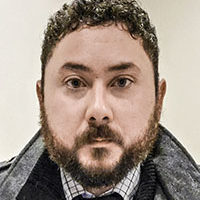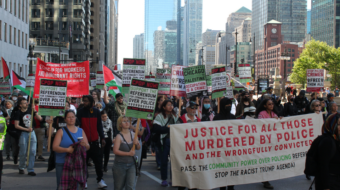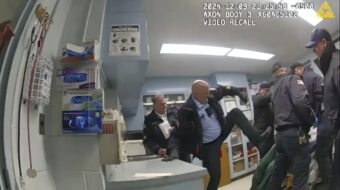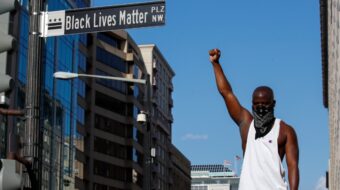
A tale of two knees. One, belonging to San Francisco 49ers quarterback Colin Kaepernick, pressed into soft green grass for a minute and 56 seconds. The other, that of Minneapolis police office Derek Chauvin, violently digging into the soft tissue of an African-American man’s neck for 8 minutes and 46 seconds, senselessly robbing the man of his life.
George Floyd’s last words were “I can’t breathe.”
His murderer, Chauvin, has been arrested and charged with third-degree murder and second-degree manslaughter. The other three officers involved remain free but unemployed—a minor inconvenience compared to death. They’ve reportedly left town.
And today, after a week of demonstrations calling for justice, we must ask ourselves: Which knee do we stand behind: Kaepernick’s? Or Chauvin’s? Which has the National Football League stood behind?
Kaepernick took a knee in 2016, saying:
“I am not going to stand up to show pride in a flag for a country that oppresses Black people and people of color. To me, this is bigger than football and it would be selfish on my part to look the other way. There are bodies in the street and people getting paid leave and getting away with murder.”
African-American bodies are continuously left lifeless in the streets. Law enforcement continues to skirt by these atrocities unscathed with the support of a divisive president comfortable enough in his racism to revive our nation’s hideous segregationist past with seven words: “When the looting starts, the shooting starts.”
More People’s World coverage:
Nationwide uprising against racist police violence
‘When the looting starts, the shooting starts’: Trump revives segregationist war cry
Black Lives Matter U.K.: London activists demand justice for George Floyd
NFL team owners, living their lives in some fantasy land, might justify not signing Kaepernick as an act of deference for the national anthem or the American flag, but it was really about profits and keeping themselves in the good graces of Trump and his base. They were complicit in the death of George Floyd through their silence when confronted by a player calling on the league to do more.
Yet NFL Commissioner Roger Goodell has no qualms about being a hypocrite.

“There remains an urgent need for action,” Goodell said following the murder of George Floyd, and the nationwide demonstrations which have followed.
“As current events dramatically underscore, there remains much more to do as a country and as a league,” Goodell said in his statement Saturday. “These tragedies inform the NFL’s commitment and our ongoing efforts. There remains an urgent need for action. We recognize the power of our platform in communities and as part of the fabric of American society.
“We embrace that responsibility and are committed to continuing the important work to address these systemic issues together with our players, clubs, and partners.”
Where was the commissioner’s feigned outrage back in 2016? Or two years prior, in 2014, as Ferguson, Missouri erupted following the murder of Michael Brown?
Oh, that’s right. There was no reason back then to play to the audience. But now, after the formation of the league’s “Social Justice Initiative,” a shiny object designed to distract from its previous inaction, Goodell finds himself needing to say something. And an apology to Kaepernick, who remains unsigned, will likely not be included.
And to think, a peaceful demonstration four years ago by football players, if acknowledged by the league, might have pushed forward more reform to our broken law enforcement and legal system.










